From Saharan silver ants to new materials: i2Cool's quest for a greener world
Writer: Zhang Zeling | Editor: Lin Qiuying | From: Original | Updated: 2025-07-14
Video by Zhen Jianhong
Hong Kong-based firm i2Cool’s patented, nature-inspired coating technology is revolutionizing passive cooling, helping to overcome global heat challenges, and reducing energy consumption. Co-founded in 2020 by CEO Dr. Martin Zhu Yihao, the company has rapidly grown into a global leader in passive (non electric) cooling solutions, securing over HK$140 million (US$17.8 million) in funding and expanding its reach to 30 countries.
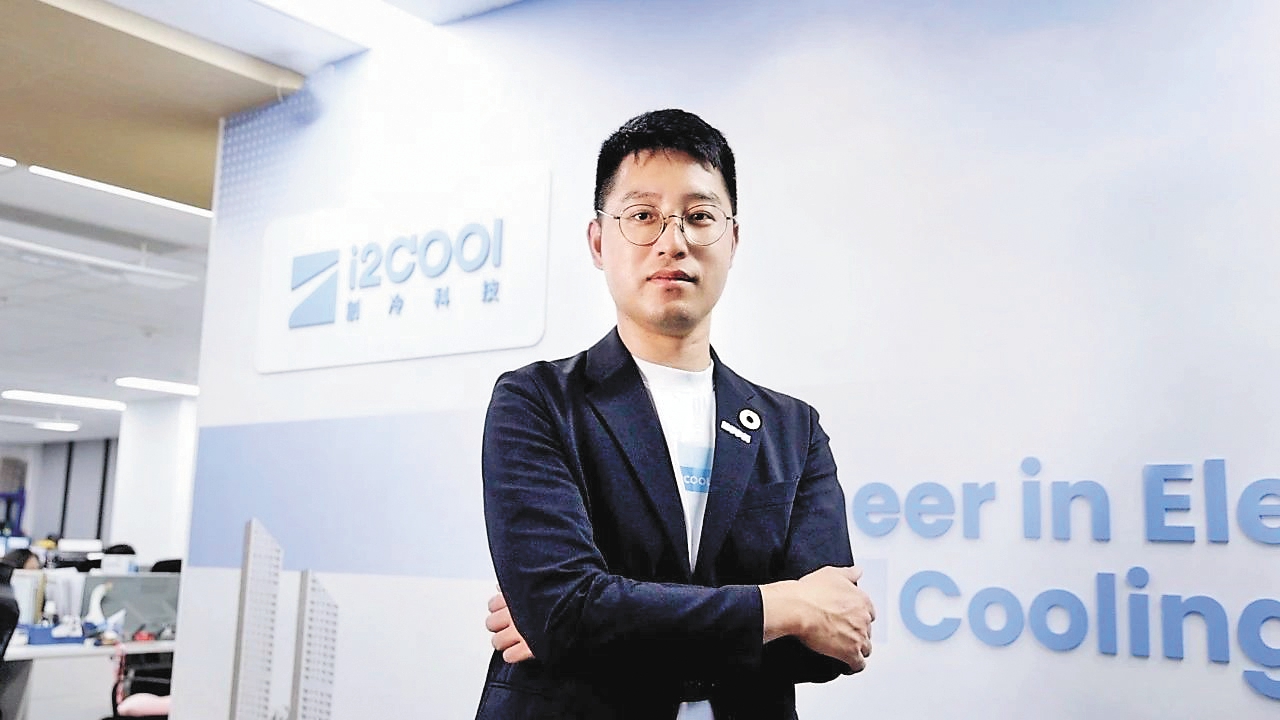
Hong Kong firm i2Cool's CEO Dr. Martin Zhu Yihao. Courtesy of the interviewee
Nature’s blueprint
The inspiration for i2Cool came from Zhu’s Ph. D research at the City University of Hong Kong, which studied the Saharan silver ant’s ability to survive extreme desert heat. This feat is made possible by the ant’s self-cooling skin and distinctive hair structure, natural mechanisms that informed the invention of i2Cool’s dual-function material.
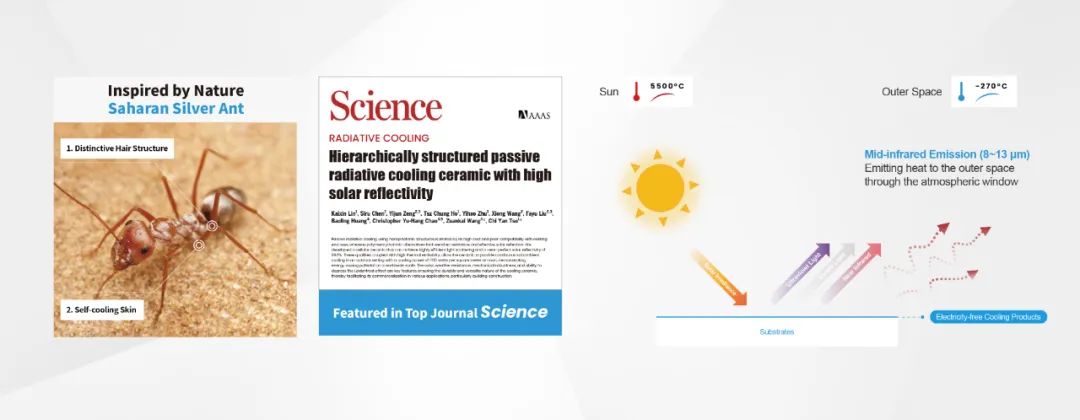
The inspiration for i2Cool came from Zhu’s Ph. D research, which studied the Saharan silver ant’s ability to survive extreme desert heat.
I2Cool’s material blocks external heat by reflecting sunlight and dissipating internal heat through mid-infrared thermal emittance. This emittance occurs in the 8-13μm spectrum — an atmospheric “window” that allows heat to radiate directly into the surroundings.
This passive cooling approach outperforms traditional insulation, lowering surface temperatures by at least 10-15° Celsius and a maximum of 40°C in real-world applications. Unlike conventional air conditioning (AC), i2Cool’s passive cooling technologies operate without electricity, making them ideal for climate-vulnerable regions and resource-constrained communities.
I2Cool’s first commercial success was at the Gala Place in Hong Kong, where its coating reduced AC usage by 42% and surface temperatures by 40°C. Subsequent projects include the iconic Hong Kong Coliseum, where annual electricity consumption was reduced by 300,000 kWh.
The company’s overseas projects include the world’s largest mall in Dubai, where AC energy consumption was reduced by 10%, and a US$10 million contract with Abu Dhabi’s royal palaces, outperforming European premium insulators by 10°C.
Beyond buildings, i2Cool has applied its coating technology to the chemical industry, power and telecoms, new energy, logistics, grain storage, and photovoltaics sectors.
Electricity-free cooling can dramatically reduce costs for data centers, 5G base stations, and power grids while minimizing evaporation losses in petrochemical tanks. When applied in cold-chain logistics, energy consumption can be cut by 25%.
GBA’s policy impetus
Initially incubated in the City U’s Tech 300 program, i2Cool leveraged the Hong Kong Science Park’s resources for its launch. With support from the Shenzhen-Hong Kong Development Office, i2Cool set up its office and production facilities in Shenzhen’s Futian Free Trade Zone. By tapping into the Guangdong-Hong Kong-Macao Greater Bay Area’s (GBA’s) manufacturing talent and supply chains, the company realized commercialization in a short period.
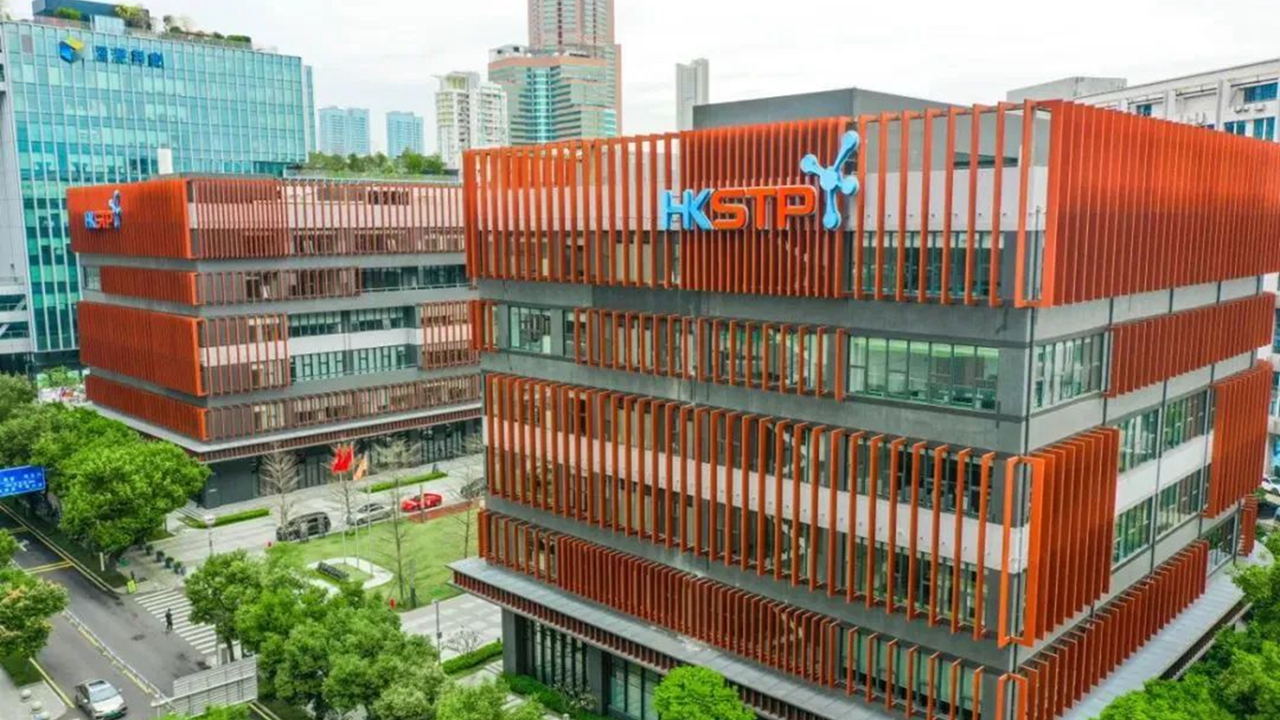
The Hong Kong Science Park Shenzhen Branch in Hetao.
According to Zhu, the Hong Kong Academy of Sciences’ Shenzhen Branch has helped startups better understand industrial demands and improve their products.
Meanwhile, i2Cool is striving to build industry-academia partnerships by working with universities, corporations, and governments. For instance, Hong Kong’s Civil Engineering and Development Department tested their materials on government buildings, validating their performance against national building codes on waterproofing and slip resistance.
Green communities
I2Cool envisions a cooler, greener world for the future. It has carried out public welfare projects through partnerships with NGOs and government bodies, deploying cooling solutions in low-income communities pro bono.
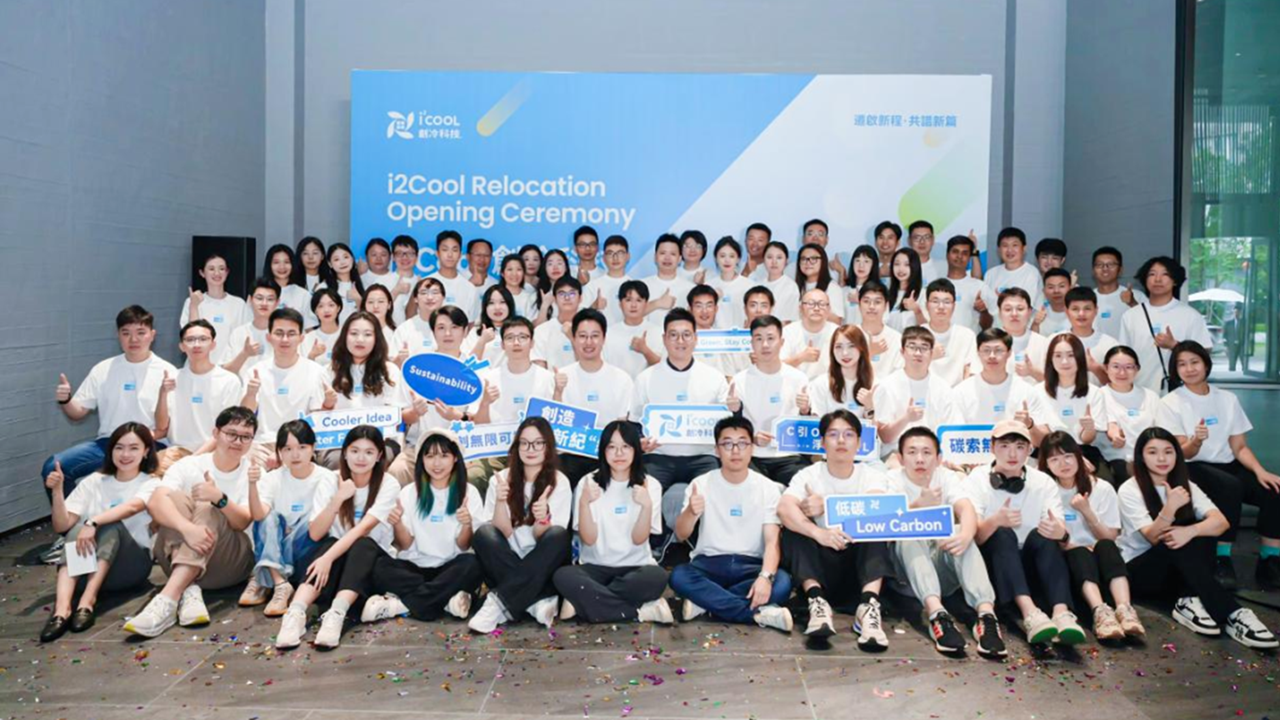
Participants of a public welfare event initiated by i2Cool pose for a group photo.
For example, i2Cool initiated a roof-coating program in Hong Kong’s Sham Shui Po to benefit citizens. The company has also helped upgrade facilities with their cool coatings in schools in Malaysia and China’s
Xinjiang Uygur Autonomous Region and Chengdu. i2Cool has also collaborated with UNESCO on climate-resilient infrastructure in other developing countries.
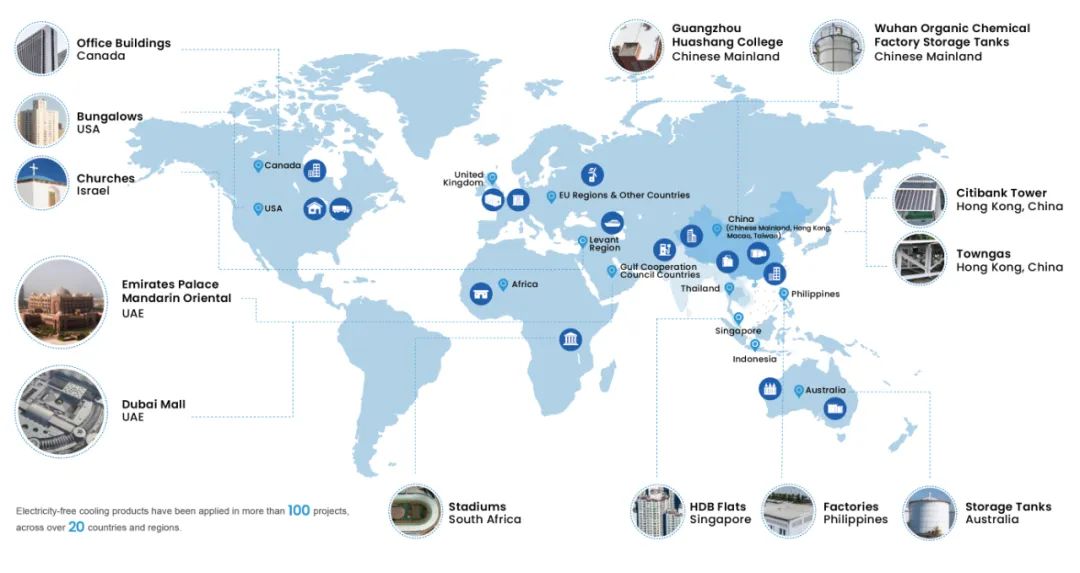
I2Cool‘s electricity-free cooling products has been applied in many regions across the world.
Zhu envisions the widespread adoption of passive cooling technology as part of global decarbonization efforts. To achieve that, i2Cool is training local workers in developing regions to produce cooling materials with recycled materials and urging governments to prioritize radiative cooling in green building codes.
The company plans to establish a joint venture in the United Arab Emirates to produce solutions for storage facilities. In Africa, they plan to explore the possibility of manufacturing with recycled materials, promoting local employment.